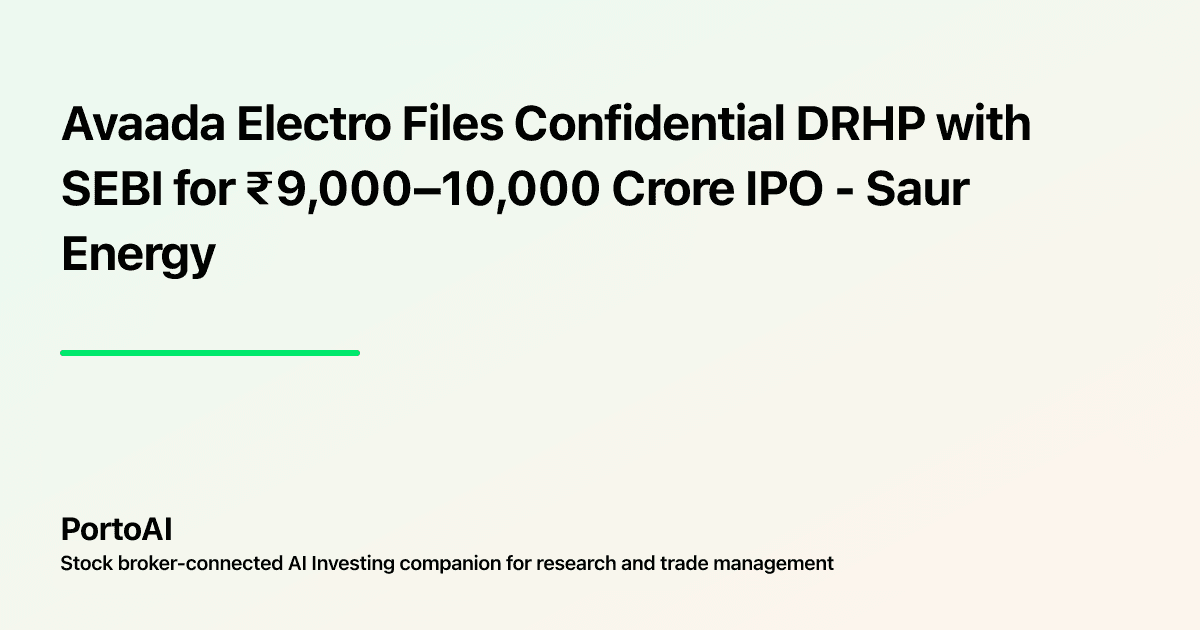How to Rollover Futures Contracts in India: A Strategic Guide

Venkateshwar Jambula
Lead Market Researcher
4 min read
•Published on September 5, 2024
•Mastering Futures Rollover in India: A Strategic Approach
In the dynamic world of financial derivatives, understanding contract lifecycles is paramount. Futures contracts, by nature, have an expiration date. While this marks the end of a contract's validity, it doesn't necessarily mean the end of a trader's position. For sophisticated investors and traders seeking to maintain market exposure or capitalize on future opportunities, the process of rollover becomes a critical tool.
What Exactly is Futures Rollover?
Futures rollover refers to the strategic process of closing out a position in a near-term futures contract and simultaneously opening an equivalent position in a futures contract with a later expiration date. This allows traders to transition their existing market view or position into the next contract cycle without liquidating entirely.
Key Characteristics of Rollover:
- Contract Transition: It involves exiting a contract nearing expiry and entering a contract with a further-out expiry.
- Position Maintenance: The core objective is to preserve the existing directional bias (long or short) or market exposure.
- Applicability: Rollover is exclusively applicable to futures contracts, not options.
Illustrative Example: The Mechanics of a Long and Short Rollover
Consider a scenario with TCS futures:
- Long Rollover: If an investor (Mr. Yadav) holds a long position in the current month's TCS futures and anticipates continued upward movement in the following month, he would sell his current month's contract and buy TCS futures for the next month. This is a long rollover. The investor initiating a long rollover typically incurs a cost, known as the rollover cost or spread.
- Short Rollover: Conversely, if a trader (Mr. Singh) holds a short position and expects prices to decline further, he would buy back his current month's contract and sell TCS futures for the next month. This is a short rollover. The trader undertaking a short rollover typically receives the rollover cost.
The difference between the price of the near-month contract and the far-month contract at the time of the switch is the rollover spread. Traders aim to minimize this spread when long rolling and maximize it when short rolling.
The Trading Cycle and Rollover Timing in India
In India, futures and options contracts typically expire on the last Thursday of the month. If this day falls on a holiday, settlement occurs on the preceding Wednesday. Rollovers are often initiated strategically, sometimes starting a week or more before the official expiry date, to take advantage of market liquidity and favorable spreads. The process is executed through trading terminals, allowing traders to input their desired spread for the rollover.
Why Rollover is Exclusive to Futures
Options contracts differ fundamentally from futures. While futures have an obligation for mandatory settlement upon expiry, options give the holder the right, but not the obligation, to buy or sell at a specified price. This asymmetry and the complex pricing of options make a direct rollover process impractical. Traders typically close out expiring options positions and establish new ones if desired.
Navigating the Risks of Futures Trading and Rollover
While rollover can be a powerful strategy, it's essential to acknowledge the inherent risks in futures trading:
- Leverage: Futures trading involves significant leverage. A small margin deposit controls a much larger notional value. This amplifies both potential profits and potential losses. Mismanagement of leverage can lead to substantial financial setbacks.
- Price Risk: Volatility in underlying asset prices directly impacts futures contract values. Unexpected market movements can erode positions rapidly.
- Liquidity: While major contracts have good liquidity, less popular contracts or specific periods can experience lower trading volumes, making it harder to enter or exit positions at desired prices, especially during rollovers.
Strategic Rollover with PortoAI
For investors seeking to leverage futures rollover, a deep understanding of market dynamics and forward-looking analysis is crucial. PortoAI's AI-native platform provides the sophisticated tools necessary for such precision. Our PortoAI Market Lens can help identify potential trends and opportunities in upcoming contracts, while the risk console allows for granular analysis of leverage and potential price movements. By synthesizing vast amounts of data, PortoAI empowers you to make informed decisions about when and how to execute your rollovers, ensuring you are positioned for long-term success rather than speculative gambles.
Disclaimer: This content is for educational purposes only and does not constitute investment advice. Securities and investment products discussed are not recommendations. Always conduct your own thorough research and consult with a qualified financial advisor.
Blog
Investment Insights and Tips
Explore our latest investment strategies and insights.

Stocks
Suzlon Energy Q2 FY26 Results: PAT soars 538% YoY to Rs 1,279 crore, highest in 30 years; revenue jumps 85%
Suzlon Energy, an Indian renewable energy solutions provider, reported a record-breaking performance for Q2 FY26, with consolidated Profit After Tax (PAT) surging 538% year-on-year to Rs 1,279 crore, marking its...
Venkateshwar Jambula
November 5, 2025
•4min

Stocks
Groww IPO set to open: Does valuation and GMP leave room for any listing gains?
Groww’s Rs 6,632 crore IPO, one of India's biggest fintech listings, is met with cautious optimism. While strong fundamentals and profitability are noted, a steep valuation and regulatory uncertainty could...
Venkateshwar Jambula
November 4, 2025
•5min

Stocks
Softbank-backed Meesho, Zomato-backed Shiprocket among 7 companies to get Sebi's approval for IPO launch
India's capital markets regulator, Sebi, has granted approval for the launch of Initial Public Offerings (IPOs) to seven companies, including prominent e-commerce players Meesho (Softbank-backed) and Shiprocket (Temasek-backed). These approvals...
Venkateshwar Jambula
November 4, 2025
•5min

Stocks
Avaada Electro Files Confidential DRHP with SEBI for ₹9,000–10,000 Crore IPO - Saur Energy
Note: Broker connections are subject to availability and your broker’s terms.
Venkateshwar Jambula
November 2, 2025
•6min